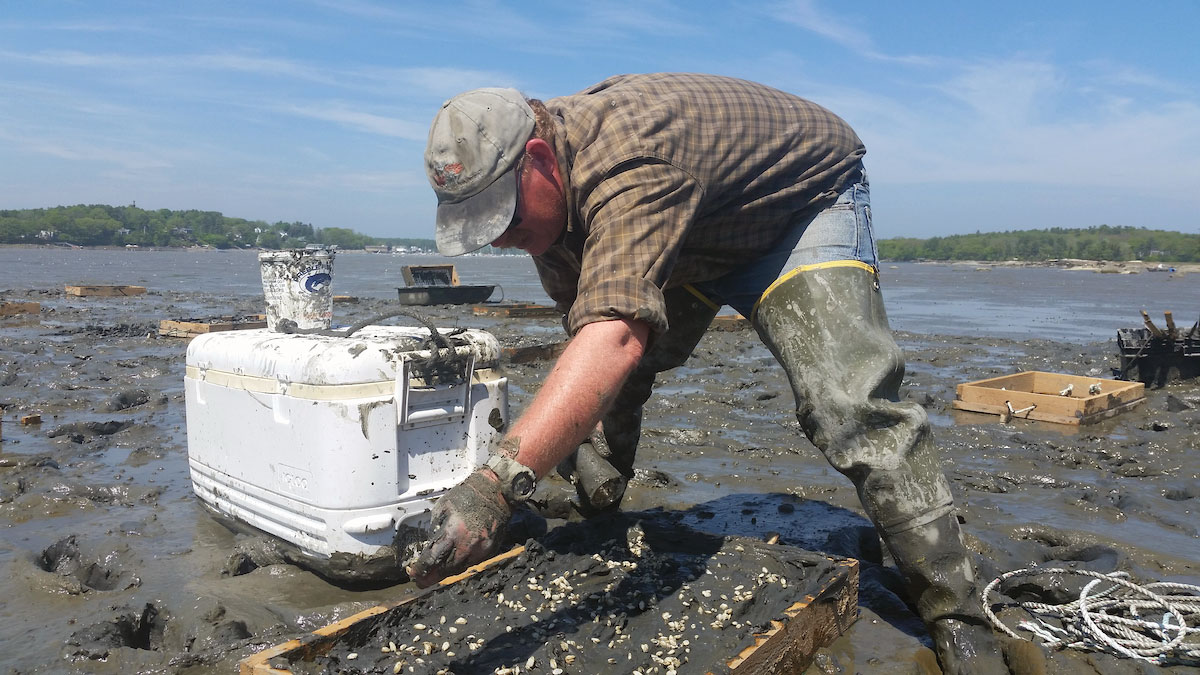
Brian Beal: Supporting the local economy through research
Professor of Marine Ecology Brian Beal has been a leader of marine research throughout the state of Maine and the University of Maine community for over 30 years.
Growing up in Jonesport, Beal developed a deep connection with the sea that has fueled a lifelong interest in marine science. In the mid-1980s as local fishermen in Washington county became concerned about a decrease in soft-shell clam harvests, Beal worked together with the group to learn how to spawn clams, raise larvae, and grow them into seed clams that can be planted in mudflats. In 1987 the joint venture became Maine’s first public shellfish hatchery, formally called the Beals Island Regional Shellfish Hatchery, which evolved in the early 2000s to become the Downeast Institute (DEI), where Beal currently serves as the director of research.
The institute serves as the University of Maine at Machias Marine Science Field Station and local experiential classroom, where students can develop their own research projects or become engaged in existing research. It is the easternmost marine research laboratory and education center in the country and houses a commercial-scale marine research hatchery, running seawater labs, and educational classroom and housing facilities that are available to researchers. The facility cultures commercially important shellfish seed, restoring and creating economic opportunities for harvesters, aquaculturists and other entrepreneurs throughout coastal Maine and beyond.
Beal has cultured most of Maine’s commercial marine shellfish species, examining their growth and survival under field conditions in a variety of nearshore habitats. He says that one of the most exciting parts of his research is when he is able to deconstruct a field experiment to collect data that has been accumulating for months at a time. “The experiment is designed to produce an answer, and typically does, that will help me and others better understand what happened or what is happening in a particular marine ecosystem,” he says. “It is exciting to understand the mechanisms that are in play that tend to regulate natural populations.”
A year before he created the clam hatchery that would become DEI, he helped establish Maine’s first lobster hatchery in the town of Cutler. In 2000-2001 Beal was a Fulbright scholar at the National University of Ireland, Galway where he worked with local fishermen and researchers to develop new economic opportunities through shellfish mariculture.
In 2019, Beal was named one of Maine Magazine’s “50 Mainers” creating a brighter future for the state for his “pivotal role in enhancing Maine’s marine economy since the 1980s.” He has not only dedicated his life to his community but has also trained the next generation of researchers to sustain and enhance Maine’s marine ecosystems, a vital part of the state’s blue economy.
Contact: research@maine.edu
